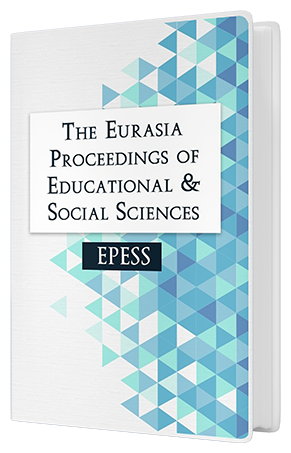Web Application for Screening Dyslexia in Greek Students
Keywords:
Dyslexia, Internet application, Screening testsAbstract
Dyslexia's diagnosis is made taking into account reading and writing skills and is carried out by qualified scientific staff. In addition, there are screening tests that are designed to give an indication of possible dyslexic difficulties. Their main advantage is that they create a pleasant environment for the user and reduce the stress that can lead to false results. An online application was created for the first time, as far as authors' knowledge, for screening Dyslexia in Greek high school students named «DyScreTe». Thus, a sample of 240 students between 16 and 18 years old in Greece was taken, of which 120 were diagnosed with dyslexia by an official authority in Greece, and 120 were typically developed. The main hypothesis that was examined is that students who were diagnosed with dyslexia by official authorities in Greece had significantly lower performance in the respective software tests. The results verified the hypothesis we made those children with dyslexia in each test had a lower performance compared to the type developed in successful responses, except for the intelligence test. After random sampling, it was shown that the new online application was a useful tool for screening dyslexia. However, computer evaluation cannot replace the diagnosis by a professional expert, but with the results of this application, the interdisciplinary team that deals with the differential diagnosis will create and evaluate, at a later time, the appropriate intervention program.Downloads
Published
Issue
Section
License
Copyright (c) 2023 The Eurasia Proceedings of Educational and Social Sciences

This work is licensed under a Creative Commons Attribution-NonCommercial-ShareAlike 4.0 International License.
The articles may be used for research, teaching, and private study purposes. Any substantial or systematic reproduction, redistribution, reselling, loan, sub-licensing, systematic supply, or distribution in any form to anyone is expressly forbidden. Authors alone are responsible for the contents of their articles. The journal owns the copyright of the articles. The publisher shall not be liable for any loss, actions, claims, proceedings, demand, or costs or damages whatsoever or howsoever caused arising directly or indirectly in connection with or arising out of the use of the research material. All authors are requested to disclose any actual or potential conflict of interest including any financial, personal or other relationships with other people or organizations regarding the submitted work.




